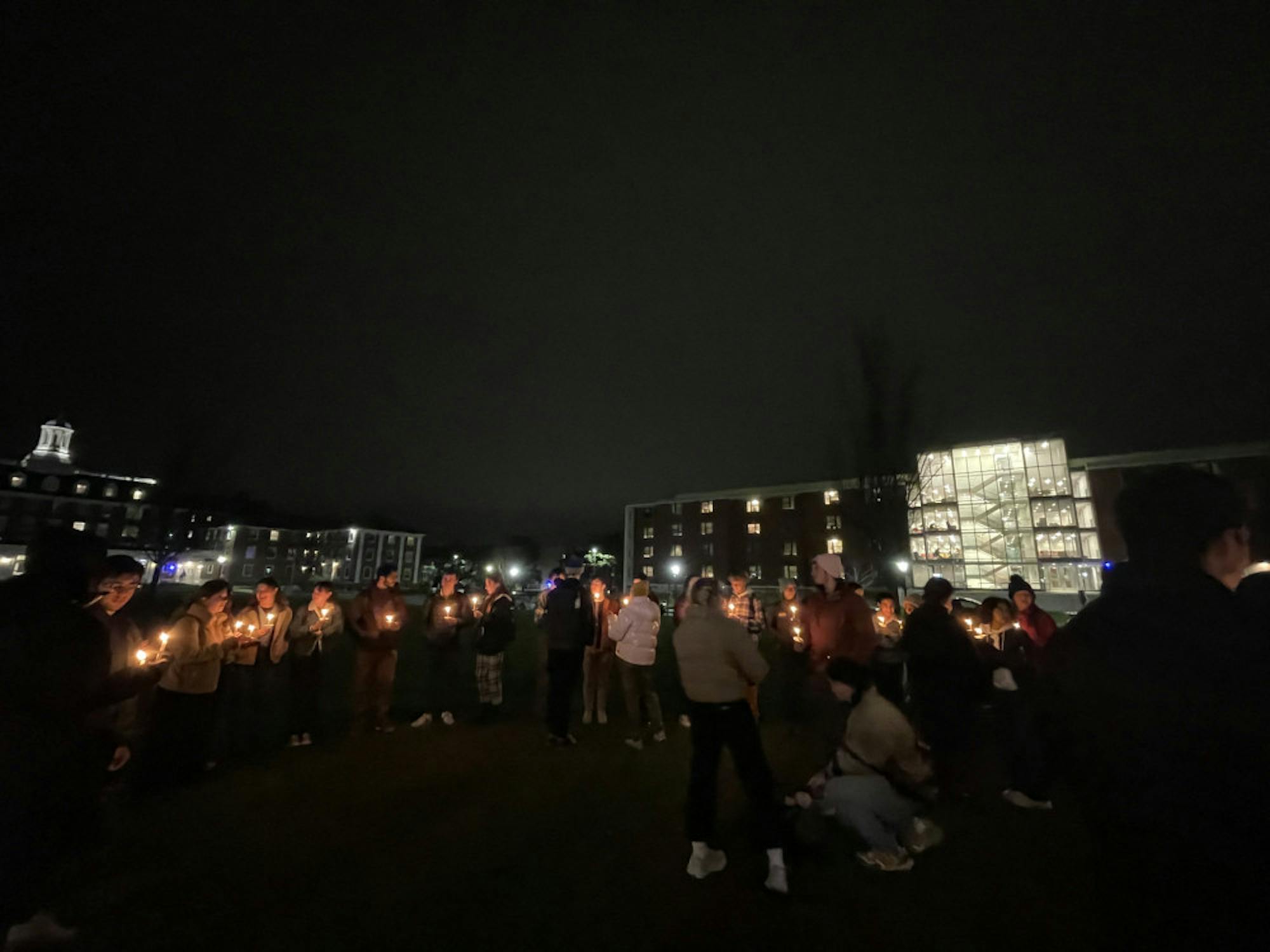After a three-year hiatus, Action for Sexual Assault Prevention continued its tradition of holding “Take Back the Night,” a candlelit walk from the Residential Quad to the roof of Tisch Library to show solidarity with survivors. After the walk on Nov. 15, students and speakers from ASAP, the University Chaplaincy, CARE and Ears for Peers gathered to share a variety of on-campus resources.
Members of the ASAP executive board explained in a joint speech at the start of the event how conversations about assault have changed to include a wider variety of experiences.
“Historically, these marches use dichotomies of darkness and light to symbolize the experiences of survivors of sexual assault or sexual violence,” Emily Karasik, a sophomore and co-leader of ASAP’s survivor safe branch, said. “While widely embraced, the stranger in a dark alley discourse of assault does not capture the majority of survivors' experiences. In reality, many survivors know their perpetrators.”
The leaders emphasized the event’s focus on engaging the community at large and focusing on community care and healing.
“‘Take Back the Night’ is a reclamation of space. It is a public example of community accountability,” Nick Hoffner, a junior and co-leader of ASAP’s conversations on masculinity, said. “It is not a one-time show of visibility. It is a call to action. We want the legacy of ‘Take Back the Night’ to extend beyond this moment we've shared together tonight.”
The statement emphasized the importance of restorative justice and vowed to hold spaces for identities disproportionately affected by sexual violence.
“There is no one kind of survivor," Rowan Hayden, a senior and president of ASAP, said. "We acknowledge the breadth of experiences and identities that survivors claim. We are committed to valuing each and every truth that survivors carry.”
University Chaplain Elyse Nelson Winger then spoke about the resources the chaplaincy provides for anyone affected by sexual misconduct either directly or indirectly.
“We can talk to you about your options for reporting. We can confidentially ask questions on your behalf as you are thinking about what you might want to do,” she said. “But first and foremost, we are here to listen and to respond to whatever you might be feeling. Grief, rage, strength, hope and everything in between."
Emma Cohen, associate prevention and response specialist and confidential resource at CARE, then spoke about the wide range of students who come in for support.
"Students come in because a friend is going through something, because a roommate is going through something, because they're a leader in a student [organization] or an athletic team … and they need some support," she said.
She also explained that CARE will stand with anyone looking to report misconduct at every step.
“I can talk to OEO on your behalf," she said. "We can call them on speakerphone without sharing your name, sitting in my office if you want some questions answered. If there is some interaction with TUPD, I can be on all those calls. I could come to all those meetings."
Cohen went on to highlight the lack of sexual health education in American high schools, pointing to the work of Tufts Sex Health Reps to respond.
“This year, only 13% of incoming first years came from states that mandated medically accurate sex ed," she said. "That's a whole lot of people who didn't get great sex ed, and they arrive on our campus not really knowing about healthy relationships, not understanding necessarily how to ask for consent, and a lot of harm can happen in that way without intention."
Hoffner spoke to the Daily about the specific programs ASAP runs on gender and violence.
“[We engage with] someone of any identifier to come in and discuss some ways in which masculinity impacted your life and also some of the intersections[it has with misconduct and violence, but also just talking about relationships, friendships, [and] the presence that masculinity can have and how it can affect everyone,” he said.
In an interview with the Daily, Hayden mentioned an ongoing program to help educate organizations on sexual assault prevention.
“We have an education outreach branch which hosts workshops for other clubs and groups on campus and the four workshops are consent, bystander intervention, responding to perpetration [and] creating a code of conduct, and responding to disclosures of sexual assaults,” Hayden said.






